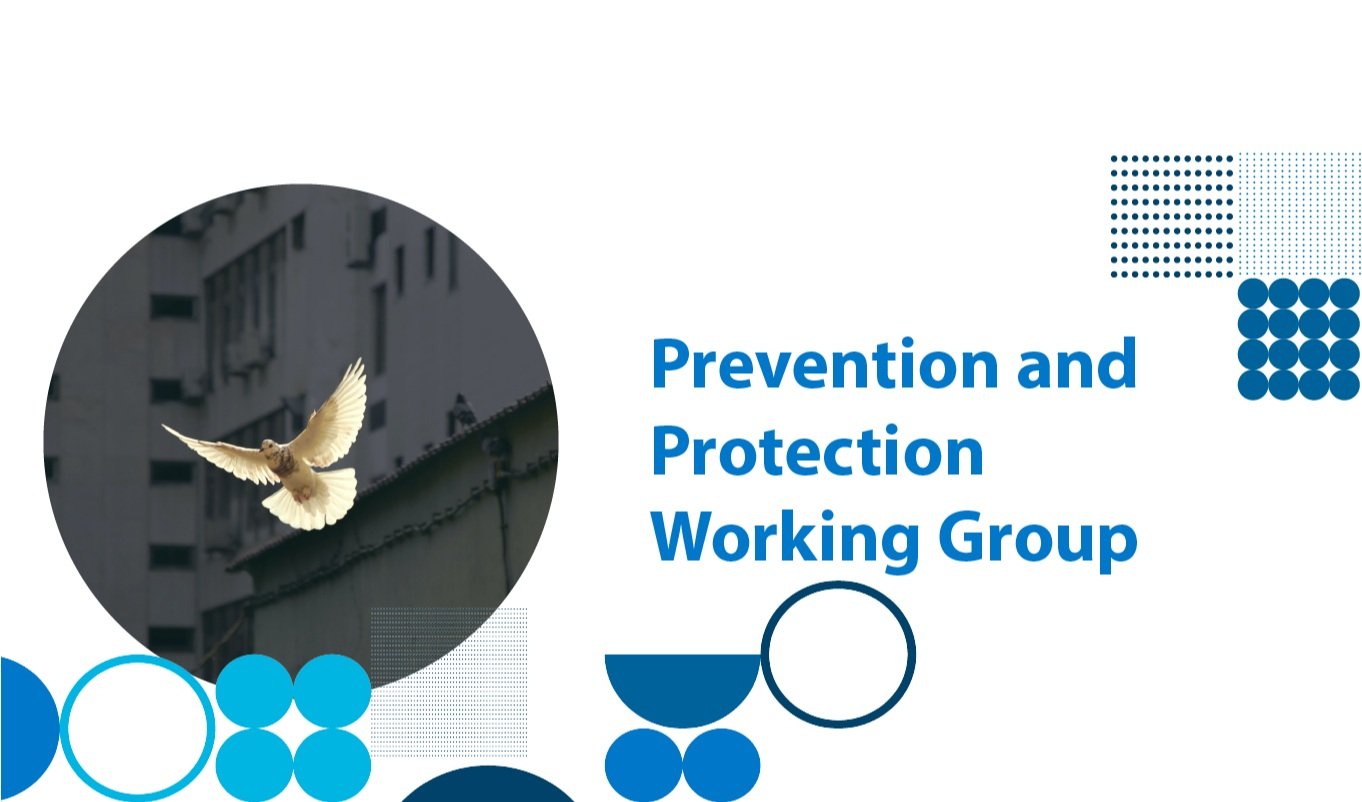The Prevention and Protection Working Group (PPWG) is a coalition of human rights, religious, humanitarian, anti-genocide, and peacebuilding organizations dedicated to improving U.S. Government policies and civilian capacities to prevent violent conflict, avert mass atrocities, and protect civilians threatened by such crises.
The PPWG works to ensure the U.S. Government has the structures and resources to effectively address complex global crises. In January 2023, AfP assumed leadership of the PPWG. As the PPWG coordinator, AfP is responsible for crafting a collaborative advocacy agenda to prevent atrocities and violent conflict and protect vulnerable civilians globally.
The PPWG and its members were instrumental in the passage and enactment of the landmark Elie Wiesel Genocide and Atrocities Prevention Act and continues to provide oversight of the implementation of the law and the U.S. Strategy to Anticipate, Prevent, and Respond to Atrocities. The PPWG also helped ensure the creation of the Complex Crises Fund, the Atrocity Early Warning Task Force (formerly known as Atrocity Prevention Board), and the State Department’s Bureau for Conflict and Stabilization Operations. The PPWG also strongly supported the Global Fragility Act (GFA) Coalition in its successful advocacy for enactment of the GFA.
The PPWG holds regular consultations with U.S. Government agencies and officials that participate in the Atrocity Early Warning Task Force, advocating for strengthened implementation of the Elie Wiesel Genocide and Atrocities Prevention Act and early action to prevent potential atrocity events and promote peace. PPWG provides frequent recommendations to the Task Force for integrating atrocity prevention into plans, budgets, and programs under the GFA. To date, the PPWG has issued conflict-specific recommendations for Burma/Myanmar, Colombia, Kashmir, Somalia, South Sudan, Sri Lanka, and Yemen.
Members of PPWG regularly visit Capitol Hill to educate Members of Congress on current and emerging conflicts, the steps that are needed to protect civilians, and the status and effectiveness of U.S. Government efforts. The PPWG provides annual appropriations requests to ensure robust funding for the implementation of the Elie Wiesel Genocide and Atrocities Prevention Act and the U.S Strategy to Anticipate, Prevent, and Respond to Atrocities, as well as overall conflict and atrocities prevention.
PPWG Subcommittees
PPWG has two subcommittees, one focused on implementation of the Elie Wiesel Genocide and Atrocities Prevention Act and another to undertake advocacy on specific conflicts.
Subcommittee on Implementation of the Elie Wiesel Genocide and Atrocities Prevention Act
Since the enactment of the Elie Wiesel Genocide and Atrocities Prevention Act in 2019, PPWG members have worked to ensure its proper implementation. The law mandates training of Foreign Service officers to identify and document potential risks of atrocity crimes and requires annual reports to Congress on current U.S. government efforts to prevent and respond to atrocities.
The Subcommittee has been instrumental in identifying key gaps and requisite resources to integrate atrocities prevention across foreign and national security policies. The full PPWG uses the Subcommittee’s analysis and recommendations in its meetings with U.S. government officials responsible for implementing and overseeing the Act and Strategy.
Key reports produced by the Subcommittee include:
PPWG Recommendations for the Biden-Harris Administration on Atrocity Prevention Efforts
PPWG: Civil Society Recommendations for Implementing Elie Wiesel Act
Subcommittee on Conflict Specific Advocacy
Members of the Conflict-Specific Advocacy Subcommittee collaborate on developing conflict prevention and peacebuilding recommendations tailored to specific contexts. The Subcommittee produces l conflict assessments highlighting priority actions to reduce the risk of genocide and atrocities, protect vulnerable communities, and build sustainable peace.
The Subcommittee regularly briefs administration officials on specific conflicts and provides recommendations, vetted by local peacebuilders.
Key reports produced by the Subcommittee include:
PPWG: Atrocity Risk Assessment: South Sudan (May 2025)
PPWG: Sudan Atrocity Determination Letter (December 2024)
PPWG: Democratic Republic of the Congo Atrocities Risk Assessment (December 2023)
PPWG: West Bank Atrocities Risk Assessment (December 2023)
PPWG: Sudan Atrocity Determination Letter (November 2023)
Joint PPWG and UK Civil Society Atrocity Prevention Working Group Letter on Sudan to Secretary Blinken and Secretary Cleverly (August 2023)
PPWG: Recommendations for the Atrocity Prevention Task Force on Sudan (July 2023)
PPWG: Recommendations on Sudan (May 2023)
PPWG: Updated Ethiopia Assessment (August 2021)
PPWG: Yemen Assessment (February 2021)
PPWG: Somalia Assessment (February 2021)
PPWG: Ethiopia Assessment (December 2020)
PPWG: Colombia Assessment (October 2020)
PPWG: South Sudan Assessment (October 2020)
PPWG: Burma-Myanmar Assessment (September 2020)
PPWG: Sri Lanka Assessment (August 2020)
PPWG: Kashmir Assessment (April 2020)

